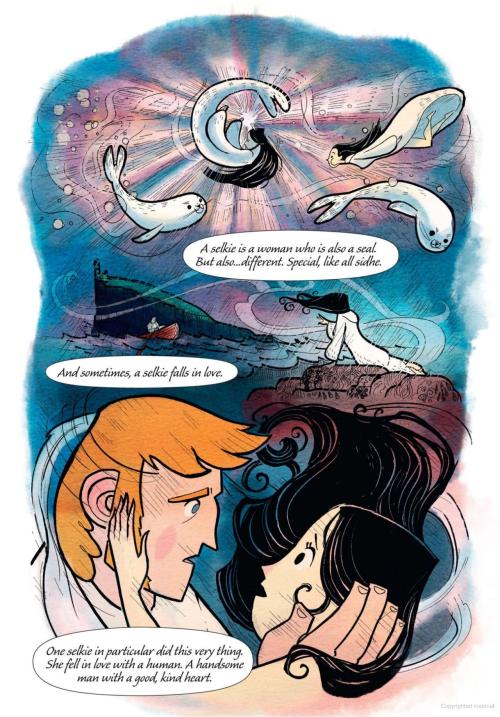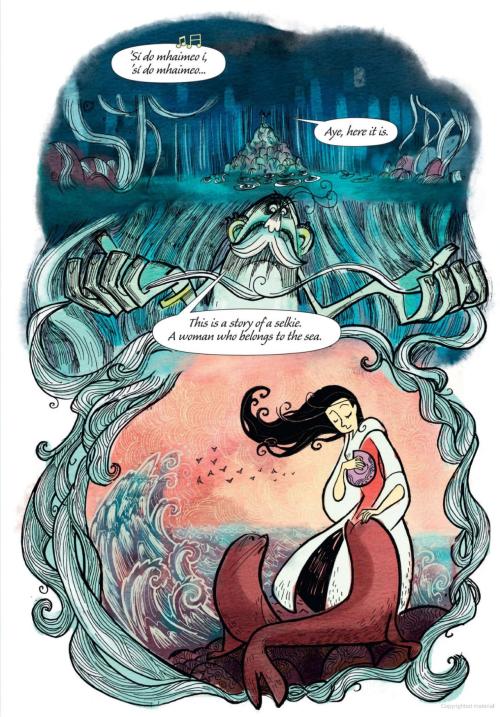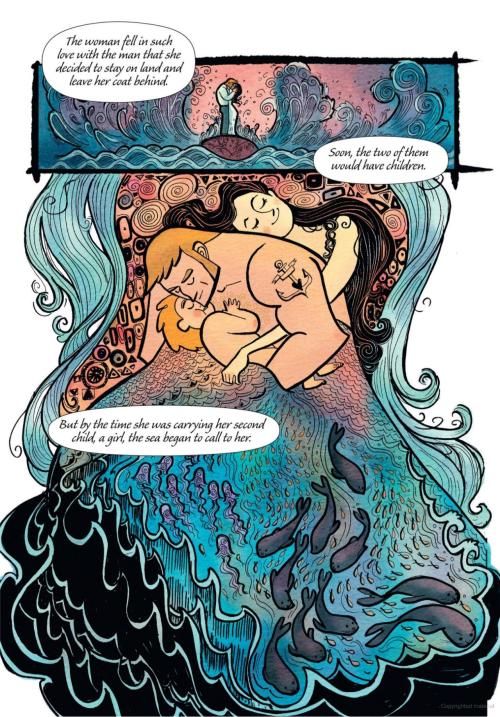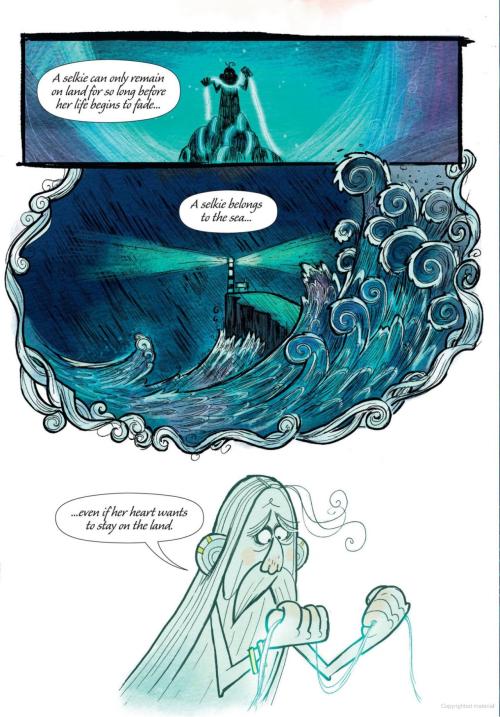I’ve Been Wanting For A While To Do A Comparison Of Dante’s Divine Comedy With CS Lewis’ The Great
I’ve been wanting for a while to do a comparison of Dante’s Divine Comedy with CS Lewis’ The Great Divorce, since the latter is very much modelled after the former (with George MacDonald in the place of Virgil) and they deal with very similar concepts.
My first inpression of the difference between them is that Dante develops a very specific and granular categorization and hierarchy on sins throughout the Inferno and Purgatorio, whereas to me all of the ones that Lewis showed were variations on a commonn theme of pride, the choice of one’s own opinions and preconceptions and self-image over heaven. In Lewis’ words, “There is always something they prefer to joy.” But as I think about it more closely, I think there are more specific correspondences between the two.
As Dorothy L. Sayers discusses in the introduction to her translation of the Commedia, there are two types of allegories: ones where all the characters are representations of specific concepts (such as in Spencer’s The Fairie Queen or Bunyan’s Pilgrim’s Progress), or one where characters with their own names and identities can stand in for specific concepts: Virgil is Virgil, but he also represents Human Reason, Ciacco is an actual Florentine who existed, but he also represents gluttony, and so forth. This makes the characters more real and alive than the first type of allegories usually feel, and also allows the work to show nuances in its concepts by having multiple characters representing the same concept and so showing different nuances of it. Both the Commedia and The Last Divorce are the latter types, but they differ in how they design their characters: in the Commedia they are specific, named characters from Dante’s time, or from history, mythology, or the Bible. Lewis doesn’t do this (probably wisely; in an age of mass media, if he was sending MPs to Hell, any conversation about the books would be about that, and not about the book’s themes); instead he gives them epithets like the Big Ghost, and Hard-bitten Ghost, and Ghost in a Bowler; I will sometimes give them other names in this post. One of the thinfs this lets Lewis do is to deliberately subvert the prominence of famous religious and historical figures in the Comedy by having his celebrated and beloved ‘great saint’ in Heaven be not a figure from the Bible or later Christian history, but an ordinary woman named Sarah Smith with an ordinary life who was good, kind, and loving to everyone she met.
As an example of how Dante and Lewis work similarly and yet differently: the concept of Avarice. Dante shows it in both Hell and Purgatory, in different forms - people who ‘getting and spending, laid waste their powers’ (the Ciardi translation actually puts it similarly to that’. Lewis has no one who rejects Heaven based on desire for personal possessions; what he has instead is the character I’ll call the Economist, who says that the reason everyone in Hell spreads out (because they quarrel all the time) is because there are no commodities to drive them to live closer together, and tries futilely to bring back one of the - extraordinarily heavy, to him - apples of Heaven as such as commodity. (Is Lewis deliberately recalling the heavy rocks rolled by the Avaricious? Probably a stretch.) His problem is not a personal desire for riches, but the need to see the world in exclusively material terms and the only solution to problems as material ones.
Another example. Lewis, like Dante, has an example of heresy, and the connection between them came to me because of Sayers’ line in her commentary, quoting Charles Williams, that “the heretic accepted the Church, but preferred his own judgement to that of the church…an obduracy of mind, an intellectual obstinacy.” All of those traits are seen in one of Lewis’ ghosts, a self-identified Christian who denies the Resurrection and insists that one cannot know any spiritual truths for certain and that he wouldn’t want to, because it would prevent free inquiry and intellectual broadness. (In opposition to the heavenly spirit he is speaking to, who insists that the point of intellectual inquiry is to learn what is true.) This ghost has another particular trait that recurs in different forms a few times in The Great Divorce: he expresses the, on the surface laudable, sentiment that he’s not of any use in heaven whereas in hell he can help people. The recurrent sentiment - from him, from the Tragedian, from the Economist, from an artist (sort of), from a variety of planners and improvers who are mentioned in passing - is the need to be needed, and the two former of these are explicitly told that they are not needed, though they are certainly wanted and welcomed. The very gratuitousness of heaven leads some to reject it.
As a further example: the Sullen, in Dante, are one of the more problematic aspects of Hell, as their fate seems rather excessively harsh just for being grumpy (or melancholy, in you like). Lewis takes a bit of a different tack that sheds some light on it. There’s an elderly ghost in Heaven who we only see complaining to heavenly friend about how dreadful her life was. George MacDonald explains to Lewis that if she’s simply an old lady with a bad habit of grumbling, she’ll accept heaven and be well in the end; but if there’s nothing left of her but grumbling, there’s nothing to be done. The sullenness that Dante depicts is here shown as a person who is looking joy in the face, who is standing in the midst of joy, but is unable to see it in their focus in dwelling on past wrongs.
Curiously, Lewis - unlike Dante in the eighth and ninth circles - spends very little time on those who are deeply evil, beyond saying “Those that hate goodness are sometimes nearer it than those that know nothing at all about it and think they have it already.” Rather than Malice, the characteristic of the lowest levels of Dante’s hell, Lewis focuses on a range of forms of distorted love that, I think, we do not see equivalents to in the Commedia. The Commedia’s characterization of the roots of evil in forms of distorted or ill-governed love (or desire) is very helpful to this concept. Virgil (via Aristotle?) characterizes it in three classes: love of thy neighbour’s ill (Pride, Envy, and Wrath: desire to put someone down for your own aggradizement, resentment of someone’s rise because it dininishes you in comparison, and immoderate anger in response to wrongs), insufficient love (Sloth - which in Lewis would likely be represented by those who don’t get on the bus at all) and excessive love of earthly things (Avarice, Gluttony, and Lust).
Lewis takes his critique well beyond that to various forms of non-sexual love for people that are nonetheless harmful to them or others. (This gets into his idea, expressed in Till We Have Faces, that in the absence of grace all human loves are ultimately selfish.) There’s a woman, who in a determination to “improve” her husband socioeconomically and culturally, drove away all his friends and pushed him into a career that made him miserable until he ultimately died of sheer unhappiness, and on her visit to Heaven can speak of nothing but all the thankless work she did on his behalf, and futilely demand to be allowed to ‘manage’ him again. There’s a woman who loved her son so all-consumingly that she neglected everyone else in her life, and made them miserable after his death by reorienting her life and theirs entirely around mourning him.
More Posts from Elanorpevensie and Others
Fic Recommendations! (Sorry I’m a little late.)
A boy king learns connects to some unruly subjects and is nearly kidnapped by them. (https://archiveofourown.org/works/282977/chapters/450232)
In searching for his father across treacherous sees, a brave boy finds a dad. (https://archiveofourown.org/works/25320028/chapters/61389370)
A princess meets a hero, and he is not what she expected (not romantic). (https://archiveofourown.org/works/64745257)
Hope you enjoy at least one.
I chose the third option and really enjoyed it! I'm not very familiar with Legends of Zelda, but it was still a fun story without all the lore background.
Now that I've looked at the other fics, I'll definitely give the Narnia one a read as well!
Steve actually dies dies when the plane crashes and his spirit remains. Hes attached to Peggy and as far as he can see, its more of an attachment of love then unfinished business.
Peggy cant see him or hear him. The closest he gets is in her dreams. Its not perfect and not every night. He's still unsure of how he can communicate to her but theres some peace of reliving memories in her mind.
She talks to him but still cant see him as time goes on.
Peggy does often feel watched. Sees a flash of famiar baby blues but just chalks it up to the various lack of sleep to grief. She feels comforted during storms where thunder rattles her bones, like a famiar weight is around her shoulders once more. And her dreams...reliving the dances they shared in private in her rented apartment, or conversations where they whispered sweet nothings.
During tense moments of anger or fighting, she gets overwhelming senses to say things she doesnt know to exist but fully believes somehow (and it turns out to be true), or last minute tactic changes she isnt aware was an option (just like how Steve saw outside the box).
Its like Steve is there, still changing and saving her life. She never voices this but shares the private thought.
One day (maybe during S1 of AC or pre-AC by a few weeks), she's hurt to the point she almost dies and is thankfully saved by others quick thinking and Steve clinging to her hand, begging her to hang on.
He has a thought, a selfish one that if she does die, she would get to be with him but Peggy doesnt deserve to die. Not like this. She doesn't deserve to perish like this. No one does.
She has so much work to do. To change the world. Hed give his life a thousand times over for her to survive.
When Peggy's eyes flutter open, she takes in the early morning light, the curtains fluttering in the wind. The sweet smell of grass and a cool wind blowing on her, tickling her hair.
"Thank God you're alive," she hears a voice that she never thought she'd get to hear again. She thinks it must be a hallucination but she doesnt care. Steve is beside her, still wearing his old and tattered uniform he's died in, but there, holding her hand and its ice cold and he smells of cold and the sea but hes here.
It turns out, after she was hurt, so close to death, Peggy can now see Steve.

this is fred, the dot.
fred wants to grow into a beautiful tree, but sadly has no branches
reblog to give fred a branch
i will post fred status updates as he grows

Reblog to make it die faster
"Deprecated Fandoms" Spam Bot Alert!
If you get a comment that says AO3 is "deleting works to conserve server space", that is a Spam Bot. There is no such thing as "deprecated fandom content", nor is there any limit on the number of works that can be posted to a fandom tag (regardless of how "popular" it is). AO3 has not changed its content policies. We are committed to upholding our founding principle of maximum inclusiveness of fanwork content, and will only remove content that violates the AO3 Terms of Service. While non-fanworks are not allowed on AO3, we consider both original works and real-person fiction to be fanworks. Please don't listen to anyone telling you otherwise.
Unlike the previous round of art spam, so far these comments have all been from guests, so our advice for handling them is different! We're working on filtering these comments out, and flagging them as spam is how you can help. Read more below the cut!
To help train our automated spam-checker to block similar guest comments in the future:
If the comment is on your own work:
Note: The "Spam" button only appears when viewing a guest comment directly on your work. This is because the AO3 comment inbox is merely a copy of the work's comments – deleting a comment from your AO3 inbox does not delete the comment from the work itself.
Go directly to the comment on your work, either by clicking on the link in your email or in your AO3 inbox.
Click on the "Spam" button to mark the guest comment as spam and remove it from your work.
That's it! You don't have to do anything else.
If you see comments like these on someone else's work:
Feel free to let the creator know the comment is from a bot and that they should mark it as spam.
You can also report the comments as botspam via the Policy Questions & Abuse Reports form linked at the bottom of every page on AO3.
If you are reporting multiple guest comments, please submit only one report and include all comment links in your report description. (You can get the direct link to any comment by clicking the "Thread" button on the comment, and then copying the URL of that page.)
AO3's Policy & Abuse committee (PAC) does not pre-screen content on AO3; they only investigate if they receive a report. All reports are reviewed by PAC volunteers, who are real human beings. You don't need to worry that your or anyone else's fanworks will be taken down due to a baseless report or a mass-reporting campaign.
If PAC were to determine that you had violated the TOS, you would receive a notification of the violation via the email address associated with your AO3 account—not via comments, social media, or any other method.
obsessed with re-embodied First Age war heroes interacting with the aman-born youth
Youth: Wow, your hair is so pretty! Such a first age throwback. Could you be related to Maedhros Fëanarion? Maedhros Fëanarion: Never heard of him
Finrod Felagund: That's a cool ring, kid. Reminds me of early first age bëorian metalwork. Youth: Gee, thanks, that's exactly what I was going for! Does it make me look like King Felagund? Finrod Felagund: Absolutely. He'd be proud
Youth: Atar said you're from the first age. Did you know the sons of Fëanor? Was Celegorm hot? This blond guy the other day told me he was really hot Caranthir: Don't listen to that blond guy again. I know what he's doing
so so sorry to all the underrated faves i couldn’t fit on here (farmer maggot)
(i know butterbur was kind of in the films, but he got way way way more depth and dialogue in the books and was like a flushed out character rather than a quick cameo)
This is an interesting thing I'm noticing as I'm reading but it kinda seems to me like a lot of the Tolkien characters all seem to have elemental symbolism that seems to follow their characterization.
Like Gandalf and Bilbo both seem to have a lot of fire symbolism that follows them around. Gandalf uses light and fire as kind of his two go to weapons and he's the keeper of the ring of Narya which is the fire one. And of course Gandalf the White is forged out of flame. And then Bilbo's introduced in the middle of smoking, and he spends a lot of time hanging around campfires and hearths, like the campfire storyteller he is. He seems to like hanging out in the Hall of Fire at Rivendell, and his conflict with Smaug obviously also involves a lot of fire. He's also arguably the character who is closest to Gandalf.
Frodo on the other hand is like all water imagery. One of the first things we learn about Frodo is his parents were weirdos who hung out in boats and then drowned, and he's introduced filling drinks at Bilbo's party. He makes his stand against the Nazgul at the river. He himself nearly drowns like three times in the story, and spends a lot of time in boats, being haunted by dark waters, and the sound of the ocean (and of course ends the story going over the sea). Like the water symbolism with Frodo is nonstop and he shares that in common with Gollum, who specifically is characterized by pools, rivers, and lakes, as well as fish, worms, mud and roots and caves—very wet and slimy compared to Frodo's more mariner/wayfinder imagery. But they're still kind of two sides of the same coin.
Pippin and Merry get a lot of plant and tree symbolism. Besides hanging out with ents and drinking tree wine and that time they both got eaten by a tree, it's clear Merry grew up wandering forests and knows a lot about wild plants (and writes a book on it later) and Pippin gets a ton of association with Gondor, y'know, that place that is represented by a big ol' tree. Their tobacco leaves too actually kinda play a pivotal role, and are again, very plant focused.
You'd think Sam would also be more earth oriented, being he's a gardener, but not really? Unlike Merry who's out here spitting plant facts 24/7 and working on his plant book, Sam's interest in plants seems like to only be around when he's on the clock. His symbolism is all very celestial. He's the guy who ends up using the Star of Earendil. He sees Earendil while he and Frodo are walking through Mordor. He evokes Elbereth, the Star Goddess like multiple times. He names his daughter after the star-sun shaped flower Elanor which literally means "Sun and Stars." And if you think about it, Gardener is actually kind of a perfect role for a star-guy when you remember how dependent plants are on the sun. He also seems to share some kind of connection with Galadriel who is also caked in a lot of star imagery. It also tracks he'd be paired with Frodo thematically as he serves as a guiding light to a mariner, in contrast to how Gollum represents the depths.
IDK what all that means, I just think it's neat!
Fluffy February Day 4: Strangers to Friends
(Inspired by all my favorite friendships in all my favorite fandoms)
Once upon a time, they had been strangers. Funny to look back at that time now, as though there ever could have been a part of life where they weren’t friends.
It had started small, a smile, a wave. Then the first conversation, the discovery of a shared interest.
(Saving each others’ lives a time or two didn’t hurt either.)
And somewhere along the way, between great adventures and the small, mundane things that build a life, the alchemy of time worked its magic, transmuting lead to gold, strangers to friends.
Impossible, now, to imagine a world that didn’t hold them both, fast friends forever.
————
Written for @fluffyfebruary
-
 elanorpevensie reblogged this · 3 months ago
elanorpevensie reblogged this · 3 months ago -
 elanorpevensie liked this · 3 months ago
elanorpevensie liked this · 3 months ago -
 faithful-grigori liked this · 9 months ago
faithful-grigori liked this · 9 months ago -
 jaceinwonderland reblogged this · 2 years ago
jaceinwonderland reblogged this · 2 years ago -
 fairtradebananas liked this · 3 years ago
fairtradebananas liked this · 3 years ago -
 blaka-smoko liked this · 3 years ago
blaka-smoko liked this · 3 years ago -
 jaceinwonderland liked this · 3 years ago
jaceinwonderland liked this · 3 years ago -
 snoopydown liked this · 3 years ago
snoopydown liked this · 3 years ago -
 18thcenturyduchess liked this · 3 years ago
18thcenturyduchess liked this · 3 years ago -
 arrivisting liked this · 3 years ago
arrivisting liked this · 3 years ago -
 fiammettakz liked this · 3 years ago
fiammettakz liked this · 3 years ago -
 e-merald-terror reblogged this · 3 years ago
e-merald-terror reblogged this · 3 years ago -
 e-merald-terror liked this · 3 years ago
e-merald-terror liked this · 3 years ago -
 modern-divine-comedy reblogged this · 3 years ago
modern-divine-comedy reblogged this · 3 years ago -
 aelita15 liked this · 3 years ago
aelita15 liked this · 3 years ago -
 mariesminnow reblogged this · 3 years ago
mariesminnow reblogged this · 3 years ago -
 fortuitousraven liked this · 3 years ago
fortuitousraven liked this · 3 years ago -
 fixedthatforya reblogged this · 3 years ago
fixedthatforya reblogged this · 3 years ago -
 vilewile liked this · 3 years ago
vilewile liked this · 3 years ago -
 coe-lilium liked this · 3 years ago
coe-lilium liked this · 3 years ago -
 warrioreowynofrohan reblogged this · 3 years ago
warrioreowynofrohan reblogged this · 3 years ago

Christian FangirlMostly LotR, MCU, Narnia, and Queen's Thief
277 posts



